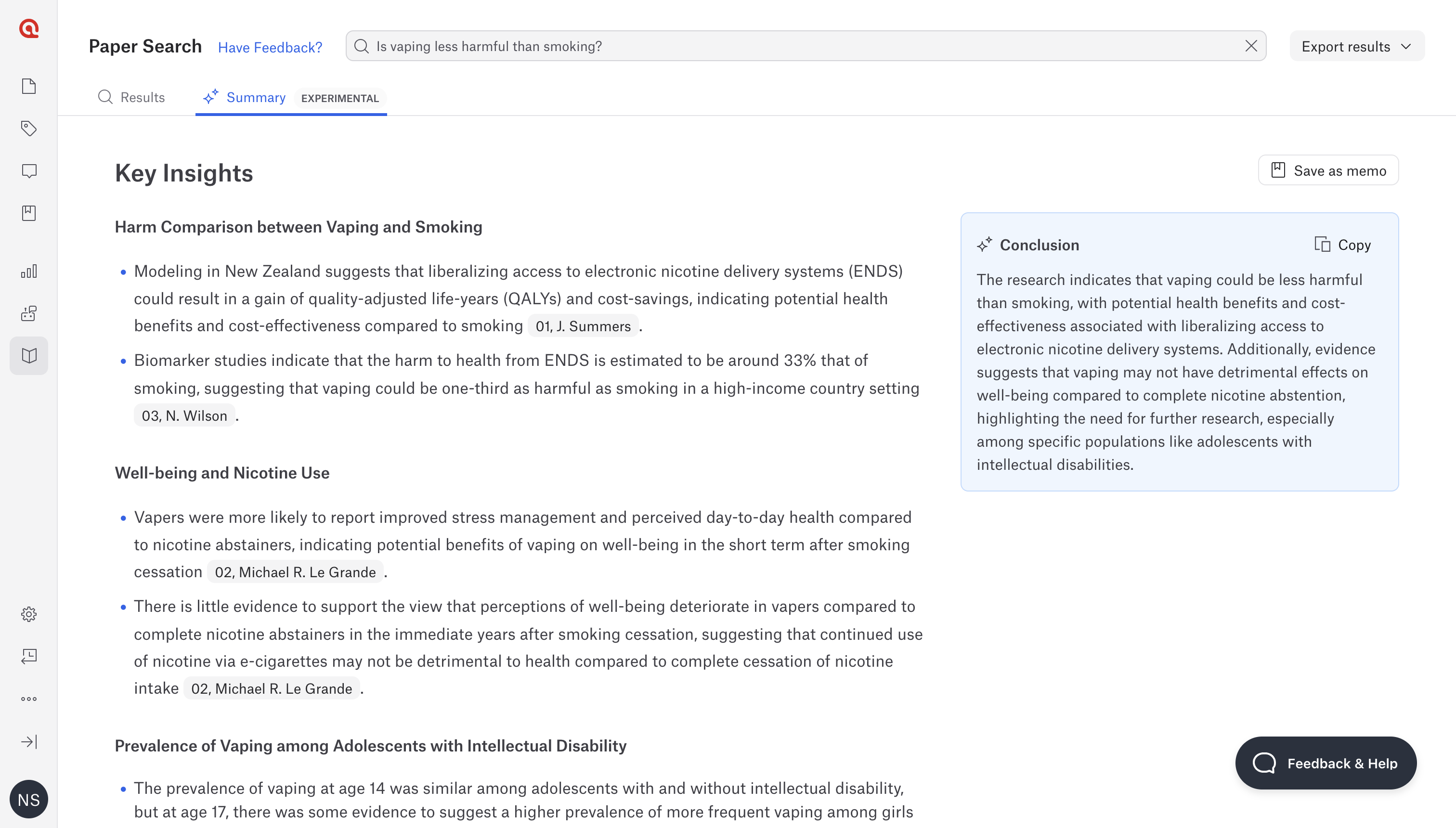Software for Literature Reviews
Software for Literature Reviews
Software and research tools can assist qualitative researchers from the start to the end of a literature review. These tools usually include search engines, reference managers, and other software with multiple functions like computer-assisted qualitative data analysis software (CAQDAS) where researchers can compile references, analyze documents, produce summaries, and organize them. It is up to you to choose the best tools that work better for your research purposes.

Search engines can vary depending on the area of focus or accessibility, for example, some are focused on biomedical and life science literature while others offer access to a broader range of articles. Some popular search engines are free to use with most articles being open-source. However, other search engines have subscription-only articles but have some open-access articles. Search engines for research papers are indispensable tools in the literature review process. These tools streamline literature searches, providing you with vast access to scientific databases.
A reference manager goes hand in hand with search engines. It is a valuable tool because it compiles scientific literature and other existing literature in a single place. You can also export the references as needed and in different formats. Many have a browser extension to facilitate quick access to full-text articles. These tools offer a user-friendly interface and advanced search capabilities, enabling you to manage your research projects efficiently. Choosing a reference manager depends on your budget and preferences.
Computer-assisted qualitative data analysis software are also useful for literature reviews. They can be the go-to source for a researcher to compile notes, articles, and references as they can all be stored in one place. For example, ATLAS.ti Web’s Paper Search feature lets you search, import, and cite academic resources from Semantic Scholar. You can then codify and analyze the literature in one place. The platform supports a cohesive and streamlined workflow that facilitates direct citation of imported documents within ATLAS.ti projects. This comprehensive integration allows researchers to conduct their entire literature review process within a single platform, focusing more on analysis and less on administrative tasks.
By integrating these tools into their workflow, researchers can efficiently conduct literature reviews, extract key information, and collaborate effectively with their teams. These powerful tools enhance the quality of research outputs and save valuable time. For any work related to the literature review, from conducting a literature search to a systematic review, these tools can optimize your workflow and ensure thorough analysis of the research published.
Open-source search engines
Google Scholar
Google Scholar is one of the most popular search engines for academic research, and it provides free access and extensive coverage. One of its useful features is the ability to configure it to include access to university libraries, which can significantly broaden search results and provide access to subscription-based content through institutional affiliations. However, the advanced search options are limited, making finding specific information challenging.

PubMed
Pubmed is a widely used search engine that provides free access to various biomedical and life sciences literature. It is run by the U.S. Department of Health and Human Services (HHS). One of its main benefits is its comprehensive indexing, making it easy to find relevant studies, including qualitative research in health-related fields. One of its disadvantages is that it primarily focuses on biomedical and life sciences, which means it has limited coverage of other disciplines.
BASE (Bielefeld Academic Search Engine)
BASE is one of the world’s largest search engines specifically designed for academic open-access web resources. BASE was created by Bielefeld University Library in Bielefeld, Germany. It indexes over 240 million documents from over 8,000 content providers, providing a vast repository of academic literature. It carries several humanities and social sciences papers, making it highly suitable for qualitative research.

CORE (COnnecting REpositories)
CORE is an open-source search engine with research outputs from repositories and journals worldwide. It offers free access to millions of open-access research papers, supporting various disciplines, including humanities and social sciences.
Semantic Scholar
Semantic Scholar is an AI-powered research tool developed at the Allen Institute for AI that provides free access and leverages AI to improve search accuracy and relevance. It features citation context, influential citation identification, and paper summarization. It is particularly strong in interdisciplinary fields such as computer science and biomedical research. ATLAS.ti has partnered with Semantic Scholar in the new Paper Search 2.0 feature in ATLAS.ti Web that allows users to seamlessly search, import, and cite academic resources. This integration provides access to over 200 million scientific resources.

Paid-access search engines
ScienceDirect
ScienceDirect, developed and maintained by Elsevier, is a premier search engine designed to access a vast repository of scholarly literature across various scientific disciplines. Launched in 1997, it forms part of Elsevier’s suite of digital solutions to support scientific, technical, educational and medical research. While ScienceDirect offers some open-access articles and free sample issues, most of its content requires a subscription or purchase. Many universities, research centers, and libraries provide access through institutional subscriptions. Individual researchers can also purchase or subscribe to specific content if institutional access is unavailable.
Scopus
Managed by Elsevier, Scopus is an abstract and citation database that indexes millions of journal articles, conference proceedings, patents, and more, providing robust search capabilities and advanced analytics tools. One of its key advantages is the ability to track citations and research impact through features like the h-index calculator and author profiles, which help researchers understand the influence and reach of their work. Scopus offers extensive coverage, including over 71 million records from more than 5,000 publishers.

EBSCOhost
EBSCOhost is a powerful online research platform that provides access to various academic databases covering multiple disciplines. Known for its comprehensive and diverse range of content, EBSCOhost includes specialized databases such as SocINDEX, PsycINFO, and Academic Search Premier, which cater specifically to qualitative research needs.
JSTOR
JSTOR is a highly regarded digital library that provides free articles or subscription-based access to an extensive archive of academic journals, books, and primary sources across numerous disciplines. Known for its comprehensive coverage of the humanities and social sciences, JSTOR includes a vast collection of scholarly articles dating back to the 19th century, which makes it a valuable resource for historical and interdisciplinary research.
